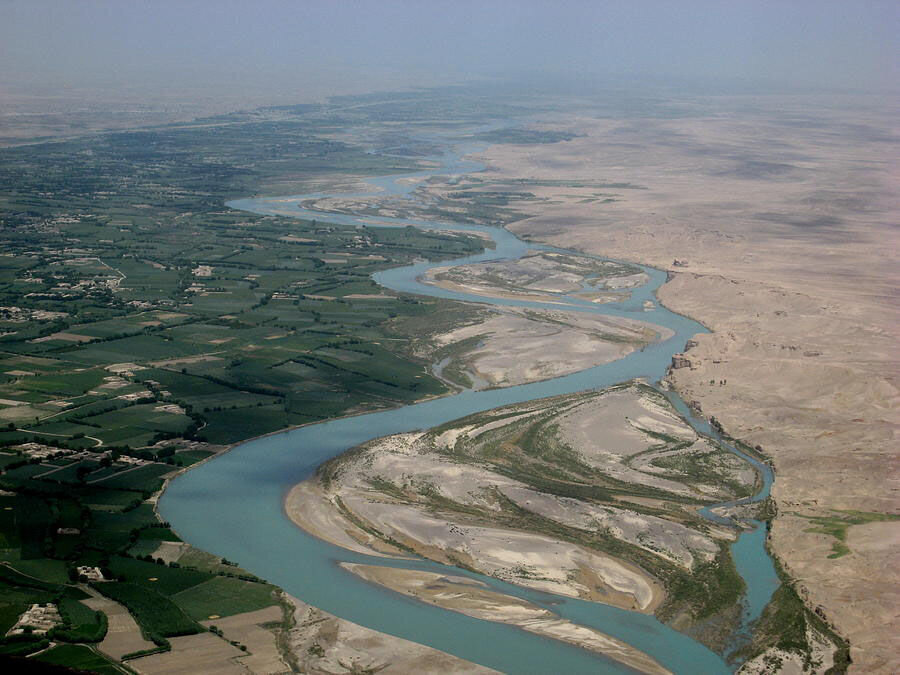DOE chief to visit Afghanistan for Helmand water right

TEHRAN – AlI Salajeqeh, the head of the Department of Environment, will travel to Afghanistan to pursue the issue of water right from the Helmand River in Afghanistan toward the Hamoun Wetland in Iran.
“In the next week or two, I will go to Afghanistan with a delegation to follow up on the issue of water right,” ISNA quoted Salajeqeh as saying.
“We are negotiating with the ruling body of Afghanistan in this regard.”
Afghanistan and Iran have been involved in a prolonged dispute for many years over water sharing. In a 1973 agreement on water sharing, the two parties agreed that Afghanistan would provide Iran with an average of 820 million cubic meters of water annually.
The Islamic Republic has chastised Afghanistan for breaking the deal on several occasions.
The development of many hydroelectric projects on the river, most notably the Kamal Khan dam in Nimrouz province and the Kajaki dam located 100 miles (160 kilometers) northwest of Kandahar province, has exacerbated the situation.
In July 2022, President Ebrahim Raisi urged serious action on Iran's water rights from Helmand.
Raisi gave the go-ahead for the issue to be addressed by the nation's foreign and energy ministries, stating that “a popular government would, under no pretexts, back down from pursuing the nation’s rights.”
Previously, Hassan Kazemi-Qomi, the special envoy of the Iranian president for Afghanistan, said in a statement that the measures that have been taken so far promise that water will be released in Helmand this year.
According to him, the dam was built in Afghanistan during the U.S. occupation with the aim of creating a challenge between the two countries.
On April 24, Foreign Minister Hossein Amir Abdollahian said that the Taliban leadership in Afghanistan has acknowledged Iran’s entitlement to the Helmand River and highlighted the urgency of redirecting it toward Iran as quickly as possible, in contrast to previous Afghan governments.
Speaking with IRNA, Amir Abdollahian noted that the Iranian Foreign Ministry engaged in serious discussions with the caretaker and interim Afghan rulers over the past 18 months as a result of a directive from Iranian President Ebrahim Raisi.
The President’s special envoy for Afghanistan, Kazemi-Qomi, also relentlessly pursued the issue, and Iran’s Energy Minister pursued it seriously alongside the concerned officials from the Foreign Ministry.
Iran’s top diplomat went on to add, “In my recent negotiations with the caretaker of Afghanistan Foreign Ministry, too, I pursued the issue of Iran’s right of the Helmand River.”
Salajeqeh had said earlier that it seems that hidden hands are in place to prevent the flow of water from the Helmand River in Afghanistan toward the Hamoun Wetland in Iran.
The energy minister of Afghanistan, on the other hand, had said they were committed to the water right based on a memorandum of understanding signed by the two sides.
In the past years, the neighboring countries have not provided the water rights of the wetlands in the south-east and north-west of the country, and this issue has created problems, Mojtaba Zoljoudi, an official with the Department of Environment, has said.
Referring to the dust storms emerging from Iraq, Saudi Arabia, and Kuwait to the west of Iran, he said: “Agreement with the neighbors and solving this problem is the first priority of the country's environmental diplomacy, which started this year and continues with more strength than before.”
He went on to say that 12 neighboring countries are members of the Ramsar Convention, and efforts are being made to form a good cooperation in this format to solve the environmental problems of the region, he added, IRIB reported.
MG
Leave a Comment